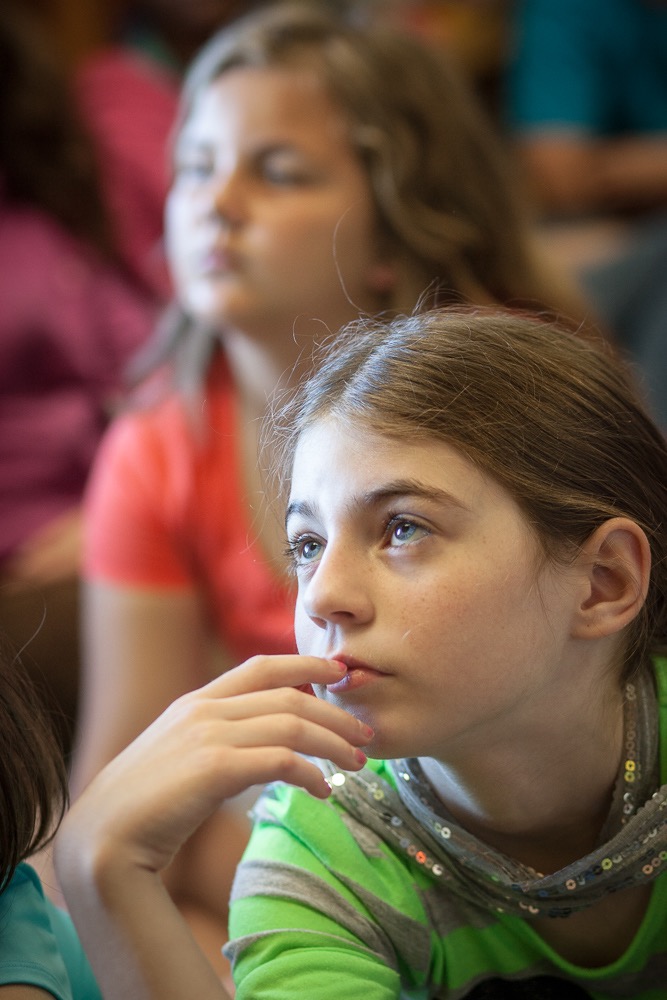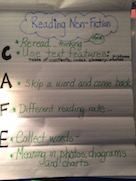Gail Boushey
May 8, 2015
Issue #355
I have had the privilege of hearing Regie Routman, Richard Allington, Donald Graves, Michael Grinder, Margaret Mooney, and other esteemed colleagues speak numerous times. It isn’t unusual for Joan and me to get in line early, assuring a seat in conference sessions that are sure to fill, disappointing attendees who arrive too late. We love getting new nuggets of information that will boost our learning and move our practice forward.

Often, the information isn’t truly new; it’s just that my brain is able to make a lasting connection this time. Maybe it’s because, through professional reading or lessons taught, I’ve gained the necessary background knowledge. Or maybe it’s just that my mind is open and receptive enough to really hear.
At our recent conference in Illinois, a teacher came up to me and said she had been to two of our conferences and was excited about joining us for a third time. I asked her why she would come to hear us speak again and again, and she said jubilantly, “I hear something new each time!”
What if we taught our students to view each lesson through the lens of “What will I learn today that is brand new to me?” For example, when reading a story aloud that some students may have already heard, have them set their purpose for listening: “Listen for something you may not have noticed the first time you read the book.” Listening with anticipation and purpose will increase understanding.
Letting students in on this strategy will teach them the power of listening to the same thing more than once to deepen understanding or gain new knowledge. We can, based on our own experience, share the benefits to be gained by learning something new each time.
News from The Daily CAFE
 Live Q & A*
Live Q & A*
Bring your burning questions to our live chat and get answers on the spot. Next chat is Wednesday, May 13, 4:00 PST.
 Pen and Pencil Pockets
Pen and Pencil Pockets
If your students use composition notebooks for writing, here is a clever idea that keeps a pen or pencil handy.
 "I Can" Bookmarks
"I Can" Bookmarks
Help students remember the key factors of these fluency strategies with easily reproduced bookmarks.
1 Use Punctuation to Enhance Phrasing and Prosody*
2 Reread Text*
 Nonfiction and the CAFE Menu
Nonfiction and the CAFE Menu
Reviewing CAFE in a new way helped Teresa Thorson's students zero in on the strategies that would help them read and understand nonfiction.
 Money War*
Money War*
This activity provides practice in counting money by identifying coins and adding the total amount.
 Recognizing Literary Elements—Small Group*
Recognizing Literary Elements—Small Group*
It's common for our students in a small group to be reading different books at varying levels.
New Check-In Feature is Live!
Check Your Pilot Light
*Available to members
Professional Development Opportunities
2015 Live WorkshopsWe are excited about our 2015 workshops. At each location, the first day will focus on Daily 5 and Math Daily 3. Day two is a new CAFE Intensive.
|
2015 Online SeminarsPrefer short bursts of information combined with independent learning? Each session offers separate seminars on Daily 5, CAFE and Math Daily 3. May 31-June 27 (Full) Learn more about Daily 5 and CAFE workshops, online seminars, and online graduate courses. Up & Running with the Daily 5
|






 Our new how-to video, shot in third-grade and fifth-grade classrooms, is available through subscription for online streaming or as a DVD at
Our new how-to video, shot in third-grade and fifth-grade classrooms, is available through subscription for online streaming or as a DVD at